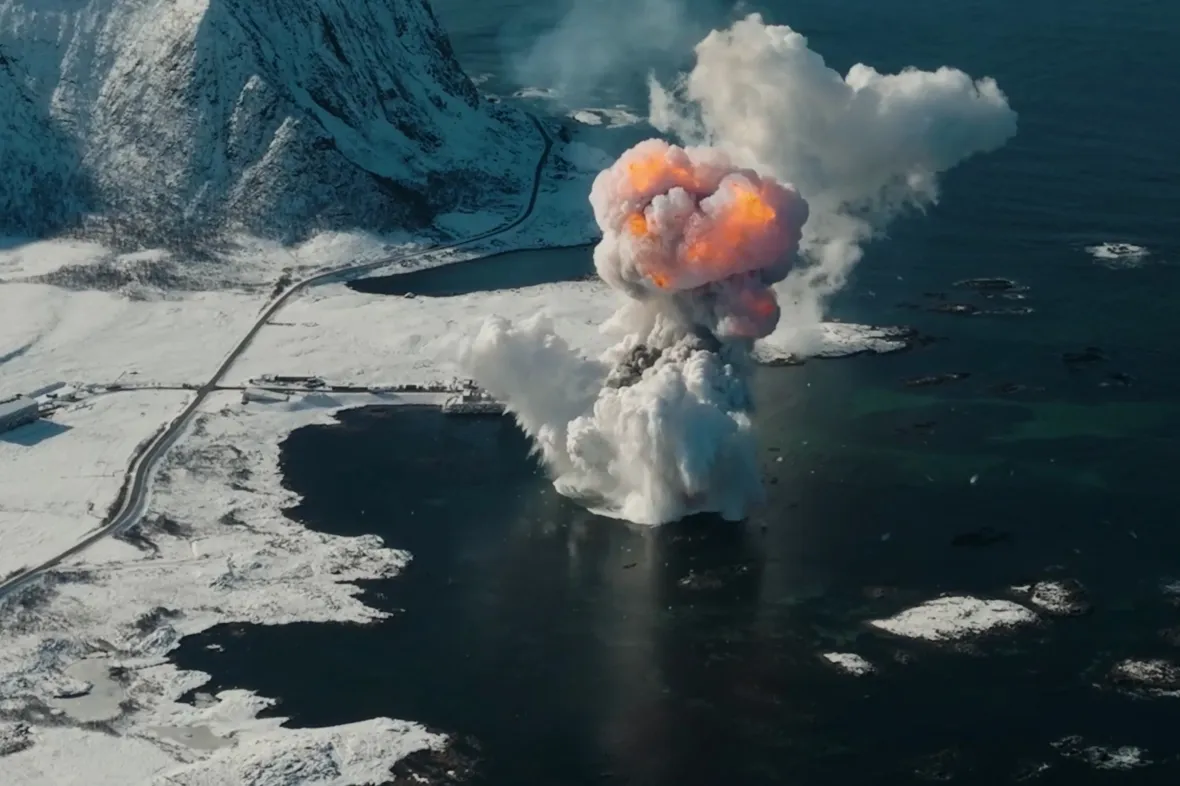Europe’s space ambitions have triggered a row between Norway and Sweden. Oslo has warned that Swedish rocket launches could bring “severe consequences” if they fail over its territory. The two nations are competing to host Europe’s leading spaceport as the continent races to build independent satellite networks and cut reliance on US systems like Starlink.
Norway Issues Stark Warning
Norway’s foreign ministry has warned that rocket launches from Sweden’s Esrange spaceport near Kiruna could have devastating consequences if a flight fails over Norwegian territory. Officials said a malfunction could threaten lives, damage vital oil and gas facilities, pollute water supplies, and disrupt key industries including fishing, tourism and aviation.
Tuva Bogsnes, a ministry spokesperson, said: “The safety of Norwegian citizens is our highest priority. All space and air activities in Norway must be conducted safely, regardless of whether they are carried out by Norwegian or foreign actors.”
She added: “There is a need for consent from, and co-operation with, Norwegian authorities due to the risk and potentially serious consequences that Norway would be exposed to by such launches.”
A Race for Europe’s Launch Hub
The warning comes as Norway’s Andoya Spaceport and Sweden’s Esrange facility compete to become Europe’s main satellite launch hub. Both sites are located above the Arctic Circle and are seen as essential alternatives to Europe’s only current launch facility in French Guiana, which is more than 3,000 miles away.
Europe is investing billions to build new satellite constellations for communications and surveillance. These networks are designed to reduce dependence on American systems such as Elon Musk’s Starlink, which currently dominate the global market.
Rocket Mishap Highlights Risks
The tensions follow a failed German test launch earlier this year. In March, a Spectrum rocket built by Isar Aerospace lifted off from Andoya but quickly lost power. It hovered in the air before crashing into the sea and exploding on impact.
Although the launch was unsuccessful, it marked Europe’s first serious attempt to achieve an orbital launch from its own soil and highlighted the high stakes involved in the continent’s growing space ambitions.
Sweden Rejects Norway’s Accusations
Swedish officials have criticised Norway’s stance, accusing Oslo of making an unfriendly attempt to grab a “veto” over what they call the crown jewels of Sweden’s space industry. They described Norway’s safety assessment as being full of “inaccuracies, exaggerations, interpretations and conclusions that are not based on factual information.”
The Esrange facility, run by the Swedish Space Corporation (SSC), is central to Sweden’s ambitions. The site, which covers an area three times the size of Greater London, has been used for suborbital launches since the 1960s. It was upgraded into a full spaceport in 2023 and is preparing for orbital launches, including a test flight later this year for Themis, Europe’s reusable rocket programme.
Charlotta Sund, SSC’s chief executive, said the site is “well on the way” to being fully operational and expects orbital missions to be possible “within a couple of years.”
Why Europe Needs Independence
The battle for Europe’s main spaceport is about more than commercial competition. Officials say it is critical for the continent’s security and for services that millions of people use daily.
Lucía Linares, head of strategy and institutional launches at the European Space Agency, said:
“I don’t think European citizens realise how much we depend on our satellites. It goes from ‘I take my mobile phone and I’m calling you right now’ to ‘I need to get out of the metro and find my way, so I use an app for navigation that’s also relying on satellites’.”
Last year, the United States launched 145 rockets into orbit, while Europe managed just three. With access to US systems like Starlink becoming increasingly uncertain, Linares warned:
“I think with the current political context, which is shifting very quickly and where there are many unknowns, each country wants to be resilient. Indeed, this need for independence has even increased.”
Calls for Co-operation
Sweden has recently softened its approach as the row escalates. Jessica Rosencrantz, Sweden’s Europe minister, said her government is aiming for a “good co-operative solution that safeguards both Norwegian and Swedish security.”
Charlotta Sund also sought to reassure Norway, saying all Esrange launches would be “conducted in a high-quality, safe and correct manner.”
With NATO urging an “aggressive timeline” for Europe’s first orbital launch, the race between Andoya and Esrange is set to intensify. The outcome will not only shape Europe’s space industry but also its ability to remain independent in an increasingly uncertain global environment.
